This year’s trend of a bumper number of reviews continued this month, though unlike the previous months, March has always been a big month. I have no idea why, but am not complaining!
The main news for the month was the announcement of the Stella Prize shortlist. In February I noted that our challenge participants had reviewed 10 of the 12 longlisted books. I’m thrilled to report that, the last two, Catherine de Sainte Phalle’s Poum and Alexandre and Madeline Gleeson’s Offshore: Behind the wire at Manus and Nauru, were reviewed in March – and Poum and Alexandre also made the shortlist. But more on the prize below.
Marvellous March
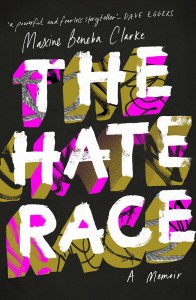 Sixty reviews were posted in March, nine more than last March and eight more than last month. I love this year’s numbers! Highlights are:
Sixty reviews were posted in March, nine more than last March and eight more than last month. I love this year’s numbers! Highlights are:
- Our most reviewed author for the month was Maxine Beneba Clarke, with four reviews for her latest book, her memoir, The hate race. Several authors were reviewed twice – Cassandra Austin, Georgia Blain, Ashley Hay, Julia Leigh, Emily Maguire, Elspeth Muir, Jane Rawson, Tara June Winch, Amy Witting and Evie Wyld. Several of these, including Clarke, were longlisted for the Stella Prize.
- Super-reviewers for the month were two GoodReads reviewers who posted eight reviews each: Calzean, who was, coincidentally, also our top reviewer for March 2016, and Theresa Petray. Kate (booksaremyfavouriteandbest) posted four reviews, and several readers posted three. Some serious reading was clearly going on in March!
- Every book on the Stella Prize shortlist was reviewed at least once during the month
The Classics
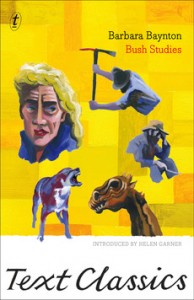 It must be close to a record, if not actually being one, but there were nine reviews for classics this month, so I am going to start by listing them (alphabetically by author):
It must be close to a record, if not actually being one, but there were nine reviews for classics this month, so I am going to start by listing them (alphabetically by author):
- Jessica Anderson’s Tirra lirra by the river (1978), reviewed by calzean (GoodReads)
- Thea Astley’s The well dressed explorer (1962), reviewed by n@ancy (GoodReads)
- Barbara Baynton’s Bush studies (1902), reviewed by Janine Rizzetti (The Resident Judge of Port Phillip)
- Mena Calthorpe’s The dyehouse (1961), reviewed by me (Whispering Gums)
- Dymphna Cusack’s Picnic races (1962), reviewed by Helena Rae (Two Clumsy Hands)
- Nene Gare’s The fringe dwellers (1961), reviewed by Jan Merry
- Mrs Aeneas Gunn’s We of the Never Never (1908), reviewed by Anna Greenwood (GoodReads)
- Elizabeth Harrower’s Down in the city (1957), reviewed by Kim Forrester (Reading Matters)
- Amy Witting’s A change in the lighting (1994), reviewed by calzean (GoodReads)
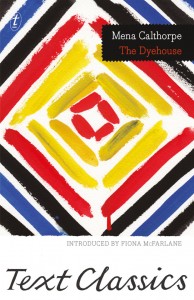 Now, I can’t share all these reviews, so will just choose a couple for books we haven’t seen here before. First is my review of Mena Calthorpe’s novel, The dyehouse, which Text Publishing chose for its 100th book in its Text Classics series. I had never heard of Calthorpe before, but this book was quite a revelation. It is set in the textile industry in 1956 – in a dyehouse – and tells the story of the managers, the workers and the pressures they face. It is particularly concerned with the workers’ situation, their lack of rights and their minimal job security which keeps them poor. I wrote:
Now, I can’t share all these reviews, so will just choose a couple for books we haven’t seen here before. First is my review of Mena Calthorpe’s novel, The dyehouse, which Text Publishing chose for its 100th book in its Text Classics series. I had never heard of Calthorpe before, but this book was quite a revelation. It is set in the textile industry in 1956 – in a dyehouse – and tells the story of the managers, the workers and the pressures they face. It is particularly concerned with the workers’ situation, their lack of rights and their minimal job security which keeps them poor. I wrote:
I really can’t recommend this book enough. It slots well into other books exploring the struggles of the working poor of the early post-war period, like Ruth Park’s Harp in the South series. And it is a thoroughly engaging read which is relevant today, not only because its humans reflect universals of human behaviour as well as the life of the period, but because we are currently seeing new threats to worker security which ensures that this book’s concerns do not feel dated.
 The other book is Dymphna Cusack’s Picnic races. Helena Rae (Two Clumsy Hands) was not completely positive about this book which, she writes, “had all the right ingredients: small-town Australia, an eclectic mix of quirky characters, a romance, gum trees and farms and swimming in rivers all to the backdrop of 1960’s social upheaval”. She found it unevenly paced, and nearly did not finish it – twice – but each time she picked it up she found a reason to continue, and in the end she “was rewarded with a delightful, very funny and surprising final fifty pages.”
The other book is Dymphna Cusack’s Picnic races. Helena Rae (Two Clumsy Hands) was not completely positive about this book which, she writes, “had all the right ingredients: small-town Australia, an eclectic mix of quirky characters, a romance, gum trees and farms and swimming in rivers all to the backdrop of 1960’s social upheaval”. She found it unevenly paced, and nearly did not finish it – twice – but each time she picked it up she found a reason to continue, and in the end she “was rewarded with a delightful, very funny and surprising final fifty pages.”
She tells us that The Canberra Times review was also mixed, and concludes:
I rarely review books I don’t love, but there is so little out there about this book that I didn’t want it unmentioned it all. It certainly isn’t without merit and if you’re interested in 20th century rural Australia then it’s worth a read.
And so, for this reason – and because Rae has written a clearly argued mixed review – I’m also including it here!
Stella Prize update
The shortlist, which was announced, appropriately, on International Women’s Day, is:
- Between a Wolf and a Dog by Georgia Blain
- The Hate Race by Maxine Beneba Clarke
- Poum and Alexandre by Catherine de Saint Phalle
- An Isolated Incident by Emily Maguire
- The Museum of Modern Love by Heather Rose
- Dying: A Memoir by Cory Taylor
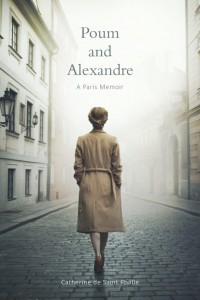 Some of these books have been featured before on our blog, but one definitely hasn’t, Catherine de Saint Phalle’s Poum and Alexandre, which is her memoir of her parents’ lives in Paris. Theresa Petray’s review is short and sweet, but she catches its flavour nicely, saying:
Some of these books have been featured before on our blog, but one definitely hasn’t, Catherine de Saint Phalle’s Poum and Alexandre, which is her memoir of her parents’ lives in Paris. Theresa Petray’s review is short and sweet, but she catches its flavour nicely, saying:
The structure is very lovely, with one section focused on each parent but clear echoes between the two.
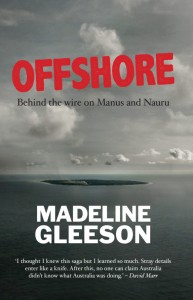 Although it didn’t make the shortlist, I should, having put the call out, also mention Theresa Petray’s review of Madeline Gleeson’s Offshore: Behind the wire at Manus and Nauru. The book is about Australia’s off-shore processing (or not) of asylum-seekers. Again, Theresa’s review is short but she says that
Although it didn’t make the shortlist, I should, having put the call out, also mention Theresa Petray’s review of Madeline Gleeson’s Offshore: Behind the wire at Manus and Nauru. The book is about Australia’s off-shore processing (or not) of asylum-seekers. Again, Theresa’s review is short but she says that
It is tough to read but important, and Gleeson has made it a bit easier to get through by focusing on facts & evidence and letting them speak mostly for themselves. It was an important reminder of things that have happened in this space in the past five years, and pulled together chronologically like this is seriously damning.
The winner will be announced on April 18, so I’ll report on that next month.
Recent releases
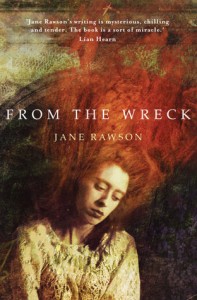 Last month I listed some of the new releases for March. As our convener Elizabeth Lhuede has posted on the next lot of new releases, I thought I’d share a couple of reviews we’ve received for March releases. One is Jane Rawson’s From the wreck which is a sort of genre-bending historical fiction story about the 1859 sinking of the steamship Admella, off the coast of South Australia. Cass Moriarty liked it, calling it it an “unusual book”, and “a unique and brave reimagining of that catastrophe”. Jo (Booklover Book Reviews) concurred, saying it is “one of the most unusual I have come across in the literary genre.” She justifies her praise by saying:
Last month I listed some of the new releases for March. As our convener Elizabeth Lhuede has posted on the next lot of new releases, I thought I’d share a couple of reviews we’ve received for March releases. One is Jane Rawson’s From the wreck which is a sort of genre-bending historical fiction story about the 1859 sinking of the steamship Admella, off the coast of South Australia. Cass Moriarty liked it, calling it it an “unusual book”, and “a unique and brave reimagining of that catastrophe”. Jo (Booklover Book Reviews) concurred, saying it is “one of the most unusual I have come across in the literary genre.” She justifies her praise by saying:
For me the mark of great literature is its capacity to expose audiences to viewpoints different from their own, and in so doing broaden their thinking. Both the originality and credibility of the different perspectives in this novel — from shipwreck survivor, to inquisitive child, to shape-shifting alien — and the intimacy cultivated between character and reader is truly impressive.
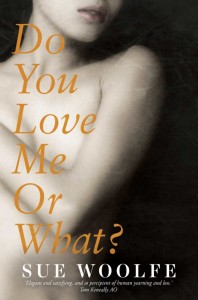 The other new release I’m sharing here is Sue Woolfe’s collection of short stories, Do you love me or what. Reviewing short stories is a tricky thing, but I loved Carmel Bird’s approach in The Newtown Review of Books. She highlighted individual stories but deftly drew together the common threads and themes. She starts her review by discussing the last story, and then in her third paragraph writes
The other new release I’m sharing here is Sue Woolfe’s collection of short stories, Do you love me or what. Reviewing short stories is a tricky thing, but I loved Carmel Bird’s approach in The Newtown Review of Books. She highlighted individual stories but deftly drew together the common threads and themes. She starts her review by discussing the last story, and then in her third paragraph writes
Longing, belonging, pleading, yearning – these are the mantras of the characters throughout the stories. The answer to the question of the title would appear to be: ‘No.’ There is one man ‘from the land of the yearners’. But they are usually women, women who are not the pretty ones, not the chosen ones.
So many books, so little time … but I hope this month’s overview has excited you about Australian women’s writing because our participants’ reviews have sure enthused me.
———————
About Me
I read, review and blog about, on Whispering Gums, literary fiction (mostly). It was reading Jane Austen when I was 14 years old that turned me on to reading literary fiction/classics, which is why I am here today doing this round-up! Little did Jane know what she started!
My love of Aussie literature started with Banjo Paterson’s ballads and Ethel Turner’s Seven Little Australians in my childhood. But, I didn’t really discover Australian women’s writing until the 1980s when I “met” and fell in love with Elizabeth Jolley, Thea Astley, Olga Masters, Helen Garner and Kate Grenville. Ever since then I have been making sure to include a good percentage of Australian (and other) women writers in my reading diet.






What an incredible month for Classics and Literary!
Thanks Theresa, it sure was.
So lovely of you to mention my review. Wonderful to see such diversity in people’s reading.
A pleasure Jo. Glad you caught it. And yes, it’s wonderful to see, I agree, and lovely how the challenge brings all this together.